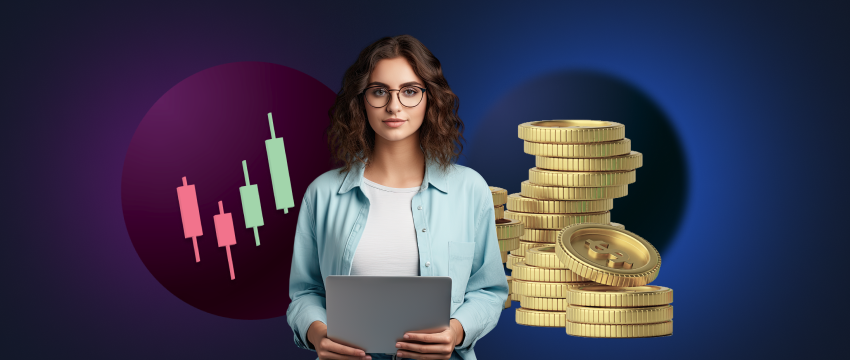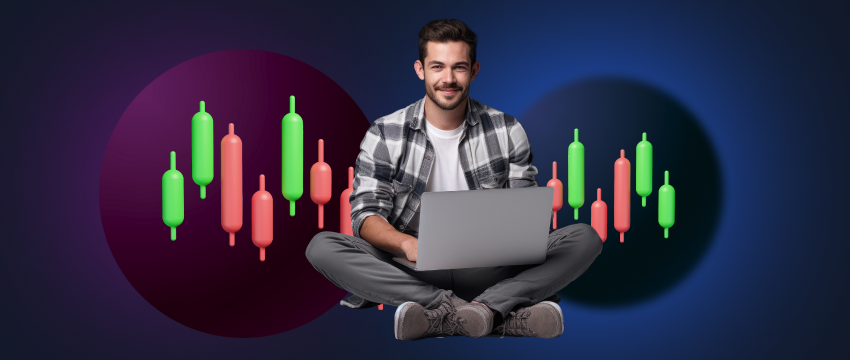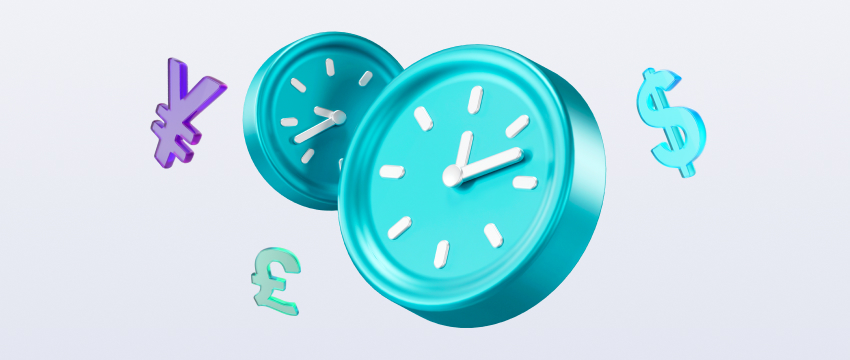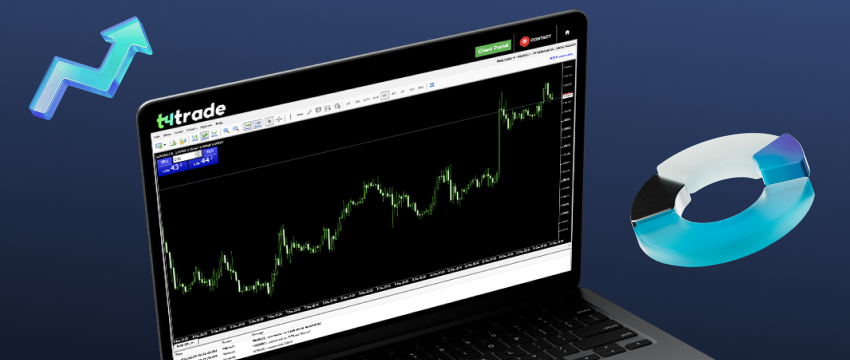The forex market is an incredibly active and volatile space, it’s the largest market in the world after all. This makes it extremely challenging to manage when currency pair prices move in adverse directions in a matter of seconds. Additionally, oftentimes, the factors impacting the market are complex, leading to trading outcomes that are difficult to manage. As a result, the risk of a trader losing all their capital through forex trading is high. However, there are many ways to increase the likelihood of achieving success as a forex trader. In this article, we’ll explore some of those ways.

1. Gaining an education
Acquiring a forex education will help minimize the risk of failure. It enables traders to apply the knowledge they gain to trading, thereby increasing the likelihood of profitable transactions. After all, forex trading is like any other financial instrument, it requires skill, research, and analysis to increase your potential for success. So what does learning look like? Here are some examples:
Blogs
- Blogs are an incredibly popular educational tool for learning about trading in forex. There are an infinite number online that cover a range of trading topics, catering to the needs of all types of traders. This ranges from fundamental forex terms to complex trading strategies, making them useful for both novice and experienced traders.
Forex videos
- Just as popular as blogs are probably forex-related videos. There are many channels on YouTube for instance that offer educational content on forex trading. However, information may vary from one channel to the next so it’s important to do your due diligence before selecting one to watch.
Webinars
- Webinars are another way for traders at various levels of experience to acquire expert insights into the forex market, trading strategies, analysis, trends, etc. Webinars oftentimes offer an interactive learning experience through Q&A sessions as well, providing additional clarity on complex trading concepts.
Podcasts
- Also popular are forex podcasts, through which traders can stay updated on the latest market trends, and gain useful tips from experienced traders.
Demo trading account
- A demo trading account also serves as a valuable tool for learning about forex trading. A demo account offers a trading environment with real market conditions. It is a simulated space in which traders can use virtual funds to practice trading. They can apply different trading strategies and track outcomes. They can acquire experience in using technical and fundamental analysis to make more informed trading decisions. Traders can also become more skilled in navigating the specific trading platform, getting a proper feel for what live trading will look like. Having the ability to practice trading in a way that doesn’t put your own money at risk, is a great way to gain expertise, knowledge, and confidence.
Many of these resources are available for free across the internet. Furthermore, most brokers will also give their traders access to a variety of educational trading tools to optimize their trading experience. This includes T4Trade which through its innovative Academy provides traders with a wealth of information to boost their capabilities and knowledge. This includes podcasts, webinars, e-books, videos-on-demand, Live TV, and even a real-time Economic Calendar. This is enhanced by T4Trade’s highly informative blog page and FAQ page.
2. Choosing a reputable broker
A successful trader is usually also one who has done their homework as far as selecting a reliable forex broker. This typically involves choosing one that is regulated, provides flexible trading conditions, and offers multiple accounts to suit all trading needs, competitive spreads, and an easy-to-use trading platform. A great broker is also one who strives to strengthen your skills as a trader, be this through educational resources or with the help of a top-tier client support team.

3. Having an effective trading plan in place
A trader who typically achieves some semblance of success has usually built and follows a well-defined trading plan. This plan normally defines the trader’s specific goals and their trading and risk management strategies. The plan also aligns with their level of expertise, budget, risk tolerance, and style of trading.
Taking it one step further, the trading plan will also include:
- entry and exit strategies
- and predefined rules upon which stop-loss and take-profit orders will be executed
- in a trading journal to monitor performance and outcomes
But is all this necessary? Does a trader have to go into such definitive detail when engaging in trading? The simple answer? Yes. A trading plan plays a pivotal role in keeping the trader focused and disciplined. It mitigates the adverse impact that unplanned, impulsive, emotive trading can have. It ensures a trader has proper measures in place to safeguard their capital and make trading decisions that are well-informed, properly analyzed, and not based on fear or greed.
This is not to say a trading plan cannot be adjusted. Of course, it can be. Trends change, currency prices move in adverse directions, and a trader also gains more experience over time. There will always be points where a plan must be tweaked to facilitate these variables. But sticking to a plan for the most part is fundamental in increasing your chances of becoming a successful CFD investor.
4. Becoming skilled in technical and fundamental analysis
A trader looking to maximize profitability and be successful will become skilled in technical and fundamental analysis. This is to ensure that their trading decisions are well-informed.
- Technical analysis refers to the study of price patterns and price charts. The trader will look at historical data in order to establish current trading conditions and possible price movements. They will pour over chart patterns, candle patterns, and technical indicators. The MetaTrader 4 platform provides some of the most robust technical analysis tools to traders, ensuring they can analyze the market of any level of complexity. This includes 30 built-in indicators, 2k+ custom indicators, 700 paid ones, 24 analytical objects (lines, channels, shapes, arrows, etc), and much more.
- In contrast, fundamental analysis looks at the overall state of the economy, and other factors like interest rates, inflation rates, GDP, employment rates, trade, manufacturing, etc. These factors are largely impacted by geopolitical tensions, war, natural disasters, pandemics, etc.
To be successful in forex trading requires having a proper understanding of technical and fundamental analysis. Of course, you may find yourself using one more than the other, depending on the type of trading you engage in (scalping, swing trading, position trading, etc). However, knowing how both works provides more comprehensive insights into how currency prices may be impacted at any given moment.
5. Understanding your trading psychology
Possibly one of the most underrated factors of being a successful trader is the impact that one’s psychology can have on trading. Having a good grasp of your emotions is key to managing your trades better. Overtrading or chasing after losses is often an indication of feelings of fear, greed, or impulsive decision-making. Take the time to learn your triggers, to be able to better identify whether the trading decision you’re about to make is based on rationale or emotion. Further, make an effort to stick to your trading plan. This will help you remain disciplined, even when the market shows volatility.

Why trade with T4Trade?
By becoming a T4Trade trader, you will gain access to more than 300 financial instruments from across 6 asset classes. You will also be able to choose from multiple accounts that best suit your trading needs and level of expertise. T4Trade also offers tight spreads, fast execution, quick withdrawals and deposits, flexible leverage, and a user-friendly trading platform. The broker’s client support team is also on hand 24/5 to help you with any challenges that you might be facing. They can be reached via email or Live Chat.
Disclaimer: This material is for general informational and educational purposes only and should not be considered investment advice or an investment recommendation. T4Trade is not responsible for any data provided by third parties referenced or hyperlinked in this communication.



